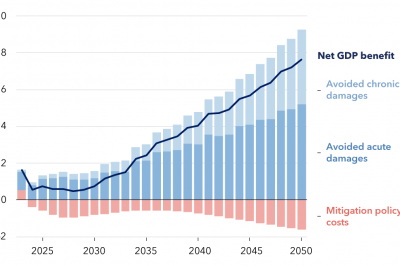Washington, D.C February 13, 2024(WAI): Recent ground-breaking research from the International Monetary Fund (IMF) highlights the strong economic argument for climate action. The world economy might gain significantly from a smooth transition to net zero emissions by 2050, according to the most recent statistics available from the IMF’s Climate Change Indicators Dashboard.
Increased GDP: According to IMF research, adopting net zero policies may result in a startling 7% rise in global GDP over the status quo.
Prioritizing decarbonization and sustainability can help countries achieve previously unheard-of levels of economic development.
Also Read: Celebrate Black History Month with the U.S. Embassy Maseru
Energy industry Transformation: Reaching net zero requires significant contributions from the energy industry. About 75% of all CO2 emissions are now linked to energy-related emissions.
The IMF highlights the need for countries to move quickly to phase out fossil fuels and promote a resilient energy system fueled by renewables like wind and solar power.
IEA Roadmap: The International Energy Agency (IEA) has published its extensive “Net Zero by 2050” study to tackle the problem of achieving global net zero. This comprehensive roadmap describes the laws, innovations, and societal shifts to accomplish a net zero energy system in the next thirty years.
IMF’s Commitment: The IMF remains committed to accomplishing its goals on climate change. Through research, policy recommendations, and discussion, we hope to advance the transition to low-carbon economies, enhance climate financing, reduce emissions, and boost resilience. Our collective efforts today will pave the way for a more prosperous and sustainable future.

I am Bushra Tahir. Doing BS in International Relations from National University Of Modern Languages ( NUML).







